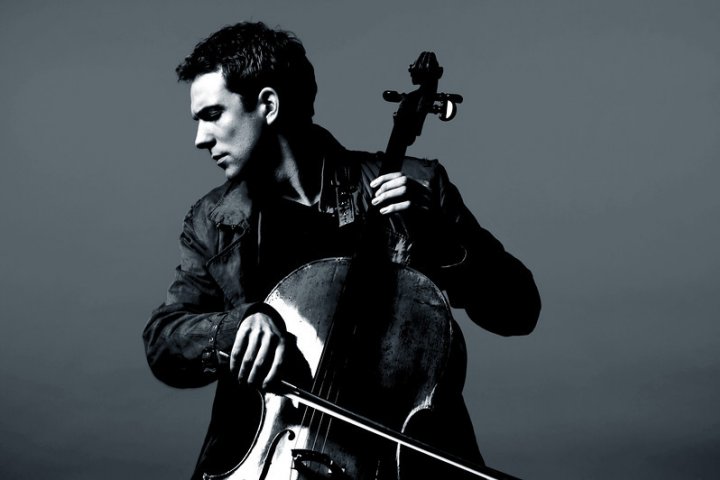Cellist Moser shines in BSO’s all-Czech program
Substituting on short notice for the ailing Jiří Bělohlávek, conductor Ludovic Morlot did an honest job Thursday night leading the Boston Symphony Orchestra in a program of music by Czech composers.
But it was soloist Johannes Moser whose commanding performance in Dvořák’s Cello Concerto lifted the evening from decent to distinguished.
Morlot was aided in his sudden task by familiarity, both of conductor to orchestra and of the music to everyone. The French-born maestro, presently music director of the Seattle Symphony, was an assistant conductor of the BSO from 2004 to 2007 and an Ozawa Fellow at Tanglewood before that. And the Dvořák concerto and Smetana’s Vltava (“The Moldau”) could hardly be called obscure works.
The same cannot be said for Fantaisies Symphoniques (Symphony No. 6) by Bohuslav Martinů, a 1953 work commissioned for the BSO and its music director Charles Munch, rarely performed by the orchestra since its 1955 premiere, and frankly described by its creator as “chaos.”
Having drawn the annotator’s short straw for Thursday’s program book, Royal S. Brown in his essay bravely suggested themes and motives, links to Shostakovich (the music did sound like him in places), and associations with events in the composer’s life, but in the end could only quote Martinů himself saying that “something holds it together, I don’t know what.”
For their part, Morlot and the orchestra vividly rendered the score’s enigmatic mutterings, folksy snatches, and aborted climaxes, but could not avoid the impression that Martinů had composed a symphony in the Shostakovich manner, then thrown the pages down a flight of stairs.
Asked to comment further on the piece, Martinů wrote several paragraphs saying why he wouldn’t (quoted in full in the BSO program) and alluded wistfully to an earlier version of the work that included three pianos in the orchestra.
When all was said and played, an elaborate Bohemian leg-pull could not be ruled out.
Apparently rehearsal time for this odd work came at the expense of Smetana’s familiar piece, which received an accurate but pedestrian reading to open Thursday’s program.
And so might it have been with the almost equally familiar concerto by Dvořák, but for one of those solo performances that pulls an entire orchestra along with it. Following a somewhat disjointed orchestral exposition in the first movement, cellist Moser took up the themes with a quiet authority backed by an effortlessly big, clear tone, and the piece was on its way.
The orchestra seemed to catch the cellist’s evident enthusiasm for the work, and even to breathe with him at the score’s sensitive points and transitions. The attention-holding breadth and tension of his playing became theirs as well.
Conductor Morlot deserved credit for catching this wave in the tutti passages, especially the big orchestral endings to the first movement and the finale, even if he occasionally let the winds cover the soloist.
Apart from the occasional bow flourish at the end of a phrase, Moser’s style of playing was more efficient than showy, but the cool with which he dispatched the work’s pyrotechnic passages only enhanced the effect, and lyrical moments blossomed easily.
At the close, the audience stood and applauded vociferously, calling the cellist back to the stage three times for well-deserved bows.
The program will be repeated 1:30 p.m. Friday and 8 p.m. Saturday. bso.org; 617-266-1200.
Posted in Performances

Posted Jan 29, 2016 at 2:29 pm by Leda Lebedkina
This turned out to be a sensational concert.
Martinů’s work was extremely interesting, reminding in character of the finale of Berg’s Violin Concerto. I wish BSO would play more of such works than boring Dutilleux and other modern composers whose names disappear in memory with the last sounds of the orchestra.
However the fanfare and fireworks go to the cellist Jonathan Moser who truly astonished with his playing. I was listening to Rostropovich with Karajan preparing to this program and Moser was better!!! What can be more rewarding for a listener? Yes, I was among those jumping to her feet in standing ovation, that was truly well deserved! Bravo, Moser! And the orchestra did well, too.
Can we have more of the same music/performer quality at BSO?